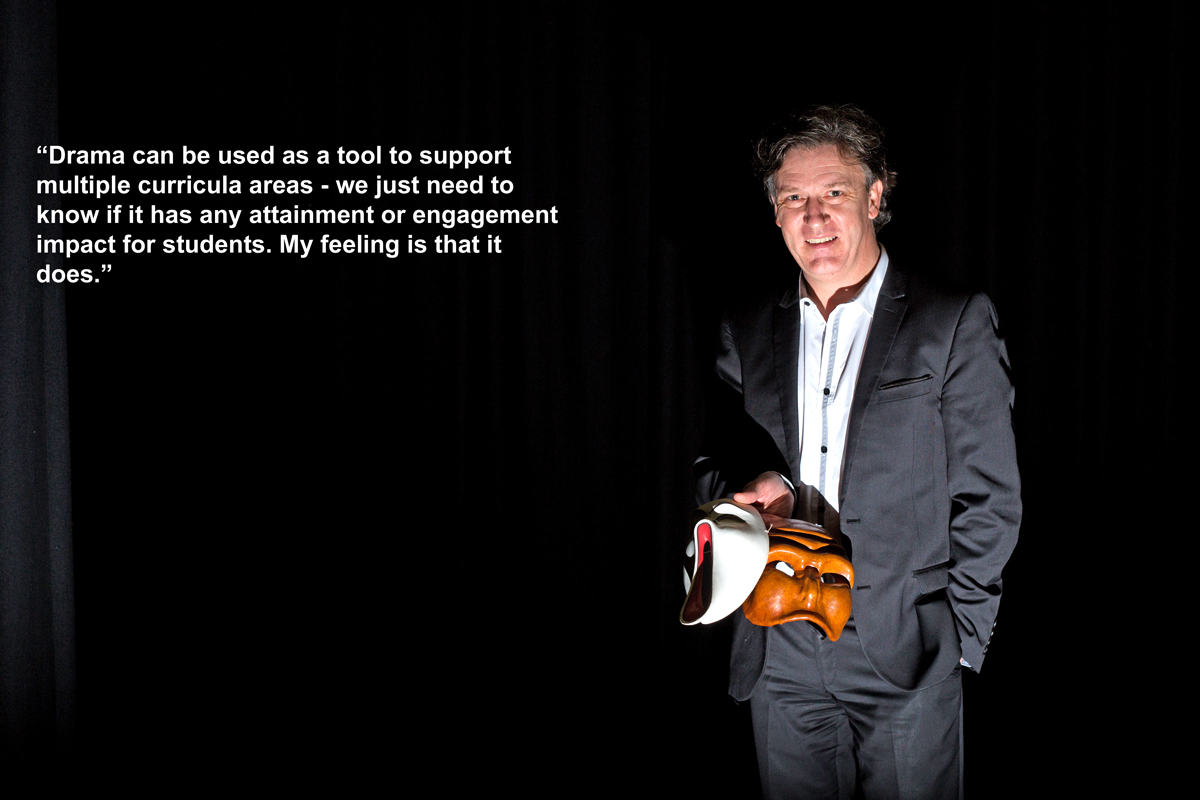Researcher Highlights
Empowering the next generation
David Roy
Wanting children to “love to learn so they learn to love,” David Roy is seeking to ensure all are given an equal chance to succeed in Australian schools.

Echoing the sentiments of Nelson Mandela, who once boldly suggested that education is the ‘most powerful weapon’ we have to change the world, the University of Newcastle’s (UON) David Roy believes effective teaching is key to not only developing literate and numerate children, but also – and perhaps more significantly – children with a concrete sense of self. The passionate School of Education Program Convenor’s studies delve deep into the use of what he terms “diverse learning techniques,” demonstrating the value of Creative Arts in particular as a tool that uniquely fosters emotional and social intelligence.
“I’m interested in supporting the large groups of kids who are ignored and/or disaffected by school as well,” David elaborates.
“Often their ‘quirky’ behaviours are explained away with diagnoses of autism or ADHD.”
“Maybe they’re just bored though.”
At the same time insisting education research is in the grave position science was 100 years ago, the dedicated scholar is also hoping to elevate perceptions of the fledgling field through his own evidence-based investigations.
“The overall aim is to inform best practice,” he affirms.
“I want to improve our country’s education system so that every child, including the ones who don’t necessarily fit the industrial mould, can achieve at school.”
The art of the Arts
David took a roundabout route to get to this point, professionally involved in both the theatre and music worlds before training and eventually working as a teacher for 17 years. Seamlessly segueing into academia in 2009, the Scottish native elected to commence a PhD at the UON.
“My thesis focused on masks and education,” he recalls.
“The former are synonymous with Drama and can do very interesting things, but they are not required in the curriculum.”
“So we have no idea if they are used – let alone if they have any impact.”
Undertaking a mix of both quantitative and qualitative research methods throughout his five-year candidature, David ambitiously looked to provide the first empirical data set on the subject. Talking primarily to school-aged children about their learning processes, the published author uncovered a number of intriguing discoveries.
“I found that teachers like masks but most aren’t trained in their use,” he reveals.
“Universities therefore need to do more in the way of education.”
“More importantly, to see students who once markedly suffered from neurological conditions or felt isolated suddenly disappear in that they were not identifiable in behaviour or engagement to the neurotypical children, was really pleasing.”
“The students recognised this too.”
Submitted in mid 2016, David’s doctoral dissertation has already led to five publications. Another three are currently being reviewed by journals.
A need for networking
Taking “great pride” in the fact that he teaches across three UON campuses, the Callaghan-based educator is now looking to expand his research focus and collaborate with other disciplines. Chiefly concentrating on teaming up with those in the Health, Social Sciences and Psychology fields, David is seeking to study sensory processing disorders and figure out how best to support children with said diagnoses in the classroom.
“I’m also looking at ways to get kids with a disability involved in the Arts,” he shares.
“Drama can be used as a tool to support multiple curricula areas – we just need to know if it has any attainment or engagement impact for students.”
“My feeling is that is does.”
The University of Newcastle acknowledges the traditional custodians of the lands within our footprint areas: Awabakal, Darkinjung, Biripai, Worimi, Wonnarua, and Eora Nations. We also pay respect to the wisdom of our Elders past and present.
